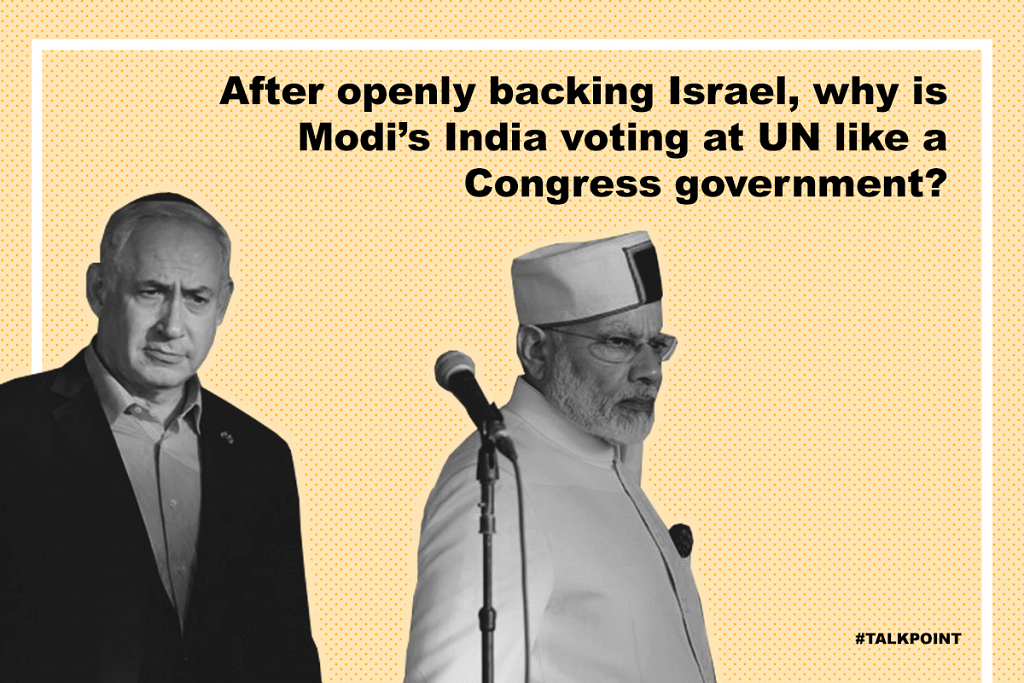ThePrint asks:
After openly backing Israel, why is Modi’s India voting at UN like a Congress government?
India’s vote at the United Nations shows that it joined hands with two of its worst enemies, Pakistan and China, to vote against two of its best strategic partners in modern times: the United States and Israel. India cannot stand by its dependable allies at critical times. During the Cold War, India always engaged in diplomatic monkey balancing at the UN to keep the Non-Aligned Movement members happy. Since Narendra Modi came to power, Indians expected that he would shape the nation’s foreign policy and some writers began speaking of the Modi doctrine.
But India’s vote at the UN shows that the Modi doctrine doesn’t exist. India is directionless even in neighbourhood where Nepal, the Maldives, Sri Lanka and others are falling into the Chinese sphere. It was not expected of Modi government to vote against the US and Israel, especially since the prime minister paid a historic visit to Israel last July, forging a strong and durable India-Israel strategic relationship.
Read other perspectives on this issue:
Arun Singh, former Indian ambassador to the US
Jerusalem was a holy city for Jews for several centuries before the birth of Islam. Muslims stopped facing Jerusalem in prayer after the Victory of Mecca. It remains a holy city for Jews, Muslims and Christians. Muslims do have spiritual claim on Jerusalem and are not prevented from praying in Al-Aqsa mosque. It is an issue between Israel and the Palestinians who have consistently refused to accept a two-state solution and Israel’s right to exist.
By voting for a resolution co-sponsored by Turkey and Yemen, India sided with a non-principled coalition of countries which routinely engage in bashing America and Israel at the UN. One understands that Turkey, Iran and Saudi Arabia contend to lead the Muslim world and vote against Israel at the UN. But what is India trying to get? Among the 128 nations voting against are members of the Organisation of Islamic Cooperation (OIC), which has consistently denied membership to India despite that it has the second or third largest Muslim population.
Earlier this month, Arab ambassadors in New Delhi met with Minister of State for External Affairs M.J. Akbar and asked for a stand on Jerusalem. These Arab diplomats have prevailed on us. Tomorrow if there is a vote on Kashmir at the UN, most of these Arab countries and Pakistan will vote against India. In fact, the OIC organised a photo exhibition and conference in Jeddah on 9 November to highlight India’s “atrocities” in Kashmir. At the minimum, India could have learned from our neighbour Bhutan, which abstained from voting. India’s vote also reveals that this nation of 1.3 billion people doesn’t have a sense of its place in the world.
Tufail Ahmad is Senior Fellow for Islamism and Counter-Radicalization Initiative at the Middle East Media Research Institute, Washington DC. He tweets @tufailelif
